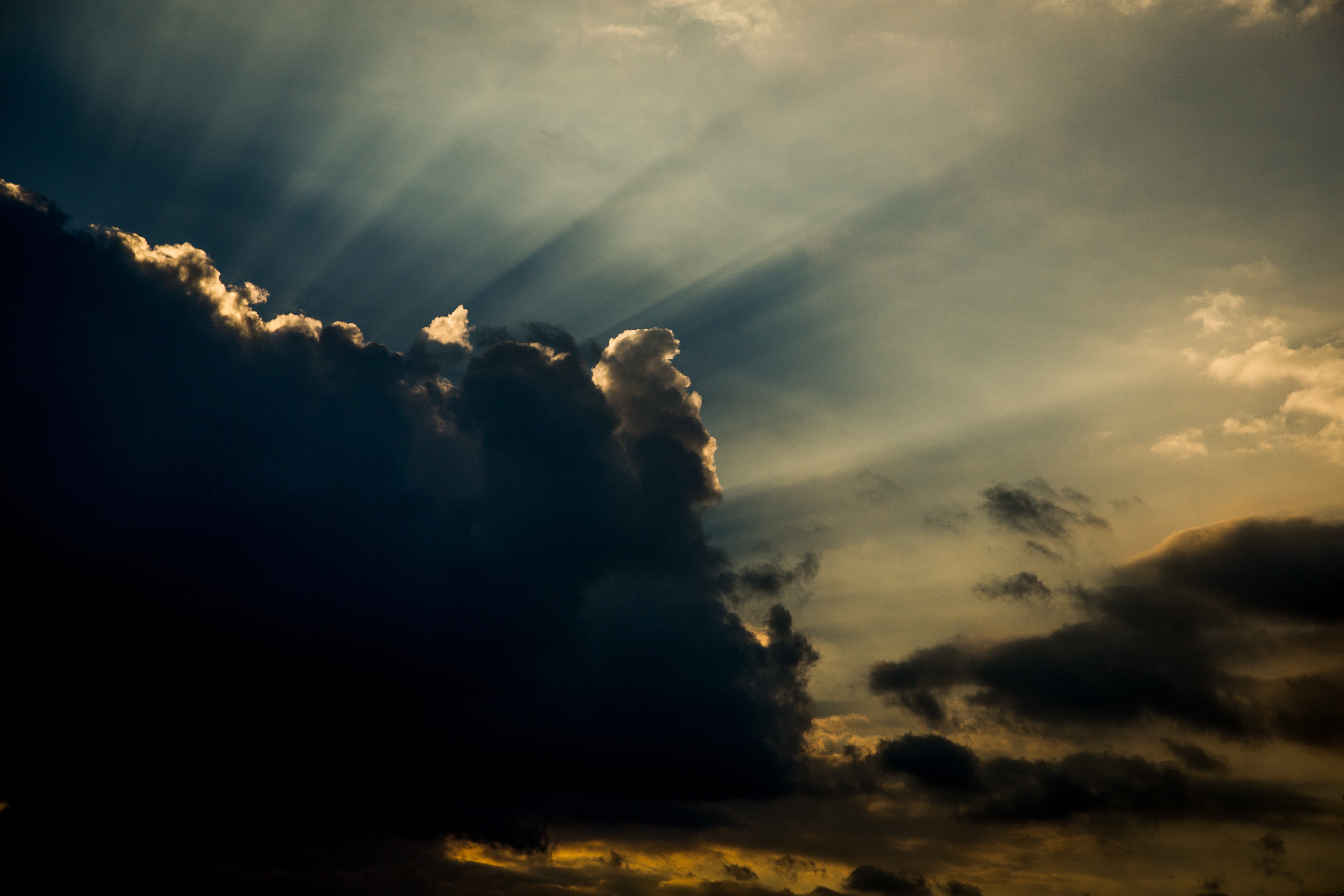We Dare to Hope
(Part 1 of 2)
Climate change is turning the earth into a desert….the opioid epidemic is spreading geographically and increasing across demographic groups…income inequality has risen to almost unimaginable levels…violence and threats against racial and religious minorities has escalated dramatically. Those are just a few examples of the brokenness of the world in which we live. Those of us who are Catholic are also facing the sins of our church, most recently the scandal surrounding former Cardinal McCarrick and the revelations from the Pittsburgh Grand Jury.
We Must Hope
Yet, in the face of all of this: We Dare to Hope. Indeed, we MUST dare to hope. The consequences of not doing so would be deadly, not only to our own well-being, but to that of the world. Our hope – our Christian hope – is perhaps the greatest gift we can share with our world. Thus, we must maintain – more than maintain, we must fan into flames – our hope.
Let me begin with a brief story, that of Dr. Edith Eva Eger, an internationally acclaimed psychologist who works with people who have experienced trauma. Her story is a story of strength and of forgiveness. But it is also, most importantly, a story of hope.
Edie (as she was called) was born in a Slovakian region that became part of Czechoslovakia when that country was created. As a child, she was a trained ballet dancer and gymnast. When she was 12, her family was evicted from their apartment because they were Jewish. At 13, Jewish men of her home town began to be rounded up and sent to a forced labor camp. A couple of years later, she was expelled from the Olympic training team at her gymnasium, despite being its most talented member, told “because of your background, you are no longer qualified.” At 16 she was sent to Auschwitz, where both of her parents, and others close to her were immediately killed.
Edie survived the hell of Auschwitz, multiple death camps and the famous Death March, in which mere hundreds of the thousands who marched survived. When the American troops liberated the camps in 1945, Edith was barely alive, her emaciated body lying in a large pile of corpses.
How did she survive?
On the cattle car to Auschwitz, Edie breathed to the rhythm of this chant: "If I survive today, tomorrow I’ll be free." In her book The Choice, Edie shares a story that underscores the role of that hope. She writes of a girl who was very ill and wasting away.
Every morning I expected to find her dead on her bunk, and I feared at every selection line that she’d be sent toward death. But she…managed to gather strength each morning to work another day and keep a lively spark in her eyes each time she faced Mengele’s pointing finger in a selection line. At night she would collapse onto her bunk, breathing in rasps. I asked her how she was managing to go on. “I heard we’re going to be liberated by Christmas,” she said. She kept a meticulous calendar in her head, counting down the days and then the hours until our liberation, determined to live to be free.
Then Christmas came, but our liberators did not. And she died the next day. I believe that her inner voice kept her alive, but when she lost hope, she wasn’t able to keep living. While nearly everyone around me – SS officers, kapos, fellow inmates – told me every moment of every day…that I would never get out of the death camp alive, I worked to develop an inner voice that offered an alternative story. This is temporary, I’d tell myself. If I survive today, tomorrow I will be free.
Every day Edie and the others were sent to the showers, an activity fraught with uncertainty: Would water or gas would stream out of the tap? She stood before Mengele, who liked to watch her dance, with fear she would be selected for death. She wrote “[the fear] never goes away. I don’t know what will happen next. But in the meantime, I can keep myself alive inside. I survived today, I chant in my head. I survived today. Tomorrow I will be free.
That was the narrative Edith Eva Eger created for herself, a narrative that is responsible for the fact that she survived, and continues to be a beacon of hope today.
That was not the narrative of many in the camps. Viktor Frankl once suggested that the record high death rate in Auschwitz during Christmas 1944 to New Year’s 1945 was precisely because so many expected to be home before Christmas. When that didn’t happen, they completely lost hope in life beyond the concentration camp.
What is Your Narrative?
What is your narrative in the face of your own suffering and the suffering of the world in which we live? It is an important question to ask, because the narrative makes a difference.
A central aspect of Christian discipleship in today’s world is to be beacons of hope in troubled times. Timothy Radcliffe, in his book What is the Point of Being Christian, speaks compellingly on this theme, making the case that hope is the central gift we, as Christians, bring to the world. If Christianity makes any difference in how we live and how we die, it has to include how we convey hope to the world, how we point to what is not yet present.
Hope is different from optimism; not the mundane attitude that things will turn out just fine. It is not, says Radcliffe, “a determined jollity, a resolution to look on the bright side. It is not optimistically insisting that the glass if half full rather than half empty, or any of the other empty platitudes with which we may try to shield ourselves from dread and hollowness.”
Nor is hope blind or baseless wishing. Hope is not “Gee, I hope snow doesn’t affect my Thanksgiving plane flights.” Or “I hope I win the lottery.”
Instead, in the words of playwright and former Czech Republic President Vaclav Havel, “Hope is not the conviction that something will turn out well, but the certainty that something makes sense, regardless of how it turns out.” Hope is our trust that in Christ, although we may not see the road ahead, there will be triumph. It is confidence, not in human nature, but in God. Our trust in God’s promise to Julian of Norwich that “all shall be well, and all shall be well, and all manner of things shall be well.” It is the hope that allows the author of the book of Lamentations (generally thought of to be Jeremiah) to say “Yet I still dare to hope when I remember that the faithfulness of the Lord never ends.”
Beacons of Hope
What does it mean for us as Christians to be beacons of hope? How do we convey hope to the world?
As a starting point, hope implies a context, a story. There has to be hope in something, some reason for hope. Christianity has one! A narrative of hope, the core of which is those three days that take us from the Last Supper to the empty tomb. Not only does God become human, as we celebrate each year at this time, but God dies for us. But the story does not end with the crucifixion. Instead, when all hope seems lost, Jesus rises from the dead. The tomb is empty. Victory is assured – however bad things look to us here and now.
I earlier raised the question, what is your narrative? We, as Christians, have a collective narrative, and it has to become each of our individual narratives. We need to internalize the reality that we are resurrection people; the Christ has already won the victory for us.
We need to believe our story, and then we need to tell our story, to share the signs of hope that we experience. In Part 2 of my reflection on hope, I’ll offer some thoughts about how we can share our hope with the world.
Read on: We Dare to Hope (Part 2 of 2)

Explore the possibilities for spiritual direction.
Learn more about Benedictine spirituality.







1 Response